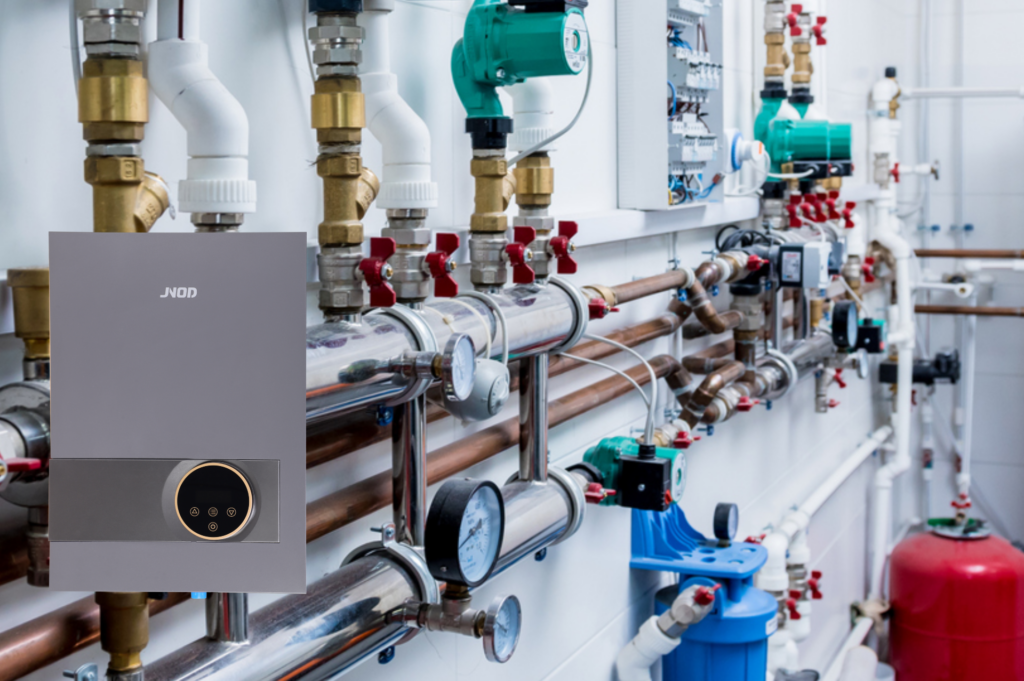Why Proper Pipe Sizing Matters for Electric Boiler Efficiency

Proper pipe sizing is a crucial factor in ensuring the efficiency and reliability of an electric boiler system. Correctly sized pipes optimize water flow, improve heat transfer, and enhance overall system performance. Poorly sized pipes can lead to pressure drops, increased energy consumption, and equipment damage. This article explores the significance of proper pipe sizing and the key factors that influence it.
Understanding Pipe Sizing in Electric Boilers
Pipe sizing plays a vital role in the functionality of an electric boiler system. The right pipe size ensures smooth water circulation, minimizes pressure loss, and maintains consistent heating performance. Engineers consider factors such as flow rate, pressure drop, and fluid velocity when designing an efficient piping system.
The Importance of Proper Pipe Sizing
Accurate pipe sizing affects multiple aspects of an electric boiler system, including:
1. Maximizing Heat Transfer
Well-sized pipes facilitate proper water flow, allowing heat to be transferred efficiently from the heating elements. Oversized pipes may reduce heat retention, while undersized pipes cause friction losses, increasing energy consumption.
2. Reducing Pump Load
Properly sized pipes help maintain optimal pressure levels, reducing strain on the circulation pump. This extends the pump’s lifespan, lowers maintenance costs, and enhances overall system reliability.
3. Preventing System Failures
Incorrect pipe sizing can lead to cavitation, where pressure drops cause vapor bubbles to form and collapse, potentially damaging pipes and pumps. A well-designed piping system prevents such issues and ensures long-term durability.
4. Enhancing User Comfort
Optimized pipe sizing allows for consistent water temperature distribution, ensuring quick responses to heating demands. This minimizes waiting time for hot water and improves the overall user experience.
Key Factors Affecting Pipe Sizing
Several factors must be considered when determining the appropriate pipe size for an electric boiler system:
- Flow Rate: Higher flow rates require larger pipes to maintain proper water velocity and distribution.
- Pressure Drop: Excessive pressure loss can affect system performance, requiring adjustments in pipe sizing.
- Fluid Velocity: High velocity can cause noise, vibration, and erosion, while low velocity can lead to sediment buildup and reduced efficiency.
- Pipe Material: Copper offers high thermal conductivity, while PEX provides flexibility and durability. The choice of material impacts overall performance.
Consequences of Incorrect Pipe Sizing
Oversized Pipes
- Increased material and installation costs
- Higher heat loss due to greater surface area
- Inefficient heat distribution and pressure control
Undersized Pipes
- Excessive pressure drops leading to performance issues
- Insufficient steam or water flow, causing system inefficiencies
- Increased risk of water hammer and equipment failure
Conclusion
Proper pipe sizing is essential for optimizing the efficiency and longevity of an electric boiler system. It ensures effective heat transfer, reduces operational costs, and enhances overall performance. Consulting a qualified HVAC professional for proper design and installation can prevent potential system failures and maximize long-term benefits.
